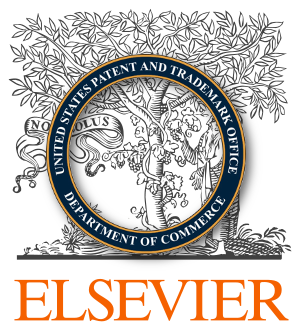

THE EFF recently became vocal about universities that feed patent trolls (in effect turning publicly-funded research into a racket against the public). The goons from Watchtroll shortly thereafter attacked the EFF for saying what it said (we have just mentioned how Watchtroll also defends patent trolls in the Eastern District of Texas using spin and deception).
The Electronic Frontier Foundation (EFF), an international non-profit digital rights group, is reaching out to universities and their communities to combat patent trolls.
According to a report published by the Harvard Business Review, patent trolls are deterrents to innovation and drain billions of R&D dollars due to legal costs. The EFF warns that patents may become landmines and may inhibit innovation when a university sells patents to trolls. Universities are drivers of innovation and this purpose is lost when trolls use the patents against organizations that invest in R&D.
The EFF's new initiative, Reclaim Invention, urges universities to rethink how they use patents by asking students, professors, and other members of the university community to take action by signing a pledge and urging their respective universities to not sell patents to patent trolls.
The Public Interest Patent Pledge (PIPP) is a promise which universities may make by signing the pledge that they will perform a due-diligence exercise before selling or licensing its patents to a third party. The pledge asks universities to assess the business practices of the buying party and ensure that those patents are used responsibly. The hope is that this pledge will discourage any license or sell of the rights of inventions, research, or innovation inadvertently to patent trolls.
On August 30, 2016, the Patent Office issued U.S. Patent No. 9,430,468, titled; “Online peer review and method.” The owner of this patent is none other than Elsevier, the giant academic publisher. When it first applied for the patent, Elsevier sought very broad claims that could have covered a wide range of online peer review. Fortunately, by the time the patent actually issued, its claims had been narrowed significantly. So, as a practical matter, the patent will be difficult to enforce. But we still think the patent is stupid, invalid, and an indictment of the system.
Before discussing the patent, it is worth considering why Elsevier might want a government granted monopoly on methods of peer review. Elsevier owns more than 2000 academic journals. It charges huge fees and sometimes imposes bundling requirements whereby universities that want certain high profile journals must buy a package including other publications. Universities, libraries, and researchers are increasingly questioning whether this model makes sense. After all, universities usually pay the salaries of both the researchers that write the papers and of the referees who conduct peer review. Elsevier’s business model has been compared to a restaurant where the customers bring the ingredients, do all the cooking, and then get hit with a $10,000 bill.
The rise in wariness of Elsevier’s business model correlates with the rise in popularity and acceptance of open access publishing. Dozens of universities have adopted open access policies mandating or recommending that researchers make their papers available to the public, either by publishing them in open access journals or by archiving them after publication in institutional repositories. In 2013, President Obama mandated that federally funded research be made available to the public no later than a year after publication, and it’s likely that Congress will lock that policy into law.
Patents on software can be controversial. And often, so is the company Elsevier, the giant journal publisher. So when word hit the internet starting on Tuesday night that Elsevier had just been awarded a patent for an "online peer-review system and method," reaction from people aligned with the publishing and open-source worlds came swiftly on Twitter and in other online venues, much of it reflecting suspicion about the company’s motives.
"Elsevier reveals its final form: Patent trolling to destroy scientific peer review," said one tweet.
Elsevier itself then turned to Twitter in an effort to allay the fears. But its assurances have not quelled the anxieties, particularly those of advocates for more open-source options in scholarly publishing.
The concern revolves around the patent Elsevier received for its five-year-old "article-transfer service," a propriety online system the company uses to manage journal-article submissions and the ensuing peer reviews.